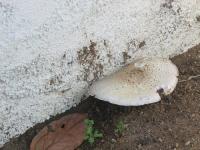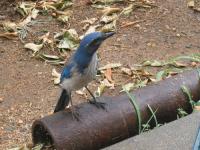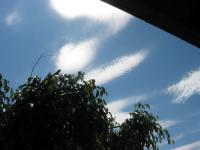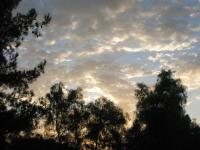May 25, 2009
No, you haven’t landed on the wrong blog. Though I usually only post about Tarot on my other blog, Spirit Blooms, in honor of World Tarot Day, I’d like to share my love of Tarot a bit more broadly, and also to honor some of the people of Tarot, including writers and artists that I think are rather special. So here it is, more than you ever thought you wanted to know about Tarot. At the same time I hope to dispel some misconceptions.
By the way, I understand that today is also World Towel Day for Arthur Dent fans (The Hitchhiker’s Guide to the Galaxy).
Tarot Writers and Artists
First, I want to introduce you to the blogs of two women and one man who’ve contributed a great deal to the study of Tarot, for me personally and for a lot of others. Mary K. Greer is the author of Tarot For Your Self and The Complete Book of Tarot Reversals, along with many other insightful books on Tarot. Rachel Pollack is an award-winning novelist as well as author of numerous books on Tarot and the Kabbalah, including Seventy-Eight Degrees of Wisdom, The Forest of Souls, and a pair of detailed companion books for the Haindl Tarot created by Hermann Haindl. Ms. Pollack also created the Shining Tribe Tarot.
In addition to those who write books about Tarot are a number of people who write articles, publish newsletters, review Tarot decks and books, and operate online forums. Then there are the deck creators who continue to color the lives of Tarot lovers with new and fascinating decks, beautiful images, and deep symbolism. James Wanless, Ph.D., or Captain Pick A Card (notice I’m linking to two different blogs here), is the creator of the Voyager Tarot, which is the first Tarot I owned and learned with, back in the late 80s. It’s a photo collage deck, and it still resonates for me in its beauty and usefulness.
Some of the most innovative modern Tarot decks include Mark McElroy’s Bright Idea Deck, and Emily Carding’s Transparent Tarot. While my preference is for a more traditional look and feel to Tarot, it’s decks like these that bring Tarot to people who never considered it before, and have helped carry it into the 21st century.
Sometimes an established artist decides to create a Tarot deck. Hermann Haindl is a great example of an artist who is also knowledgeable about Tarot, and I find his Haindl Tarot to be phenomenal. Artist decks are sometimes disappointments, either because the artists haven’t studied Tarot in depth, don’t have the right feeling for it, or because some aspect we expect of Tarot is missing. It’s not enough for a Tarot to just have pretty pictures or a novel theme. The best art-based decks are fabulous for reading, as is Elisabetta Trevisan’s deck, the Crystal Tarots.
History and Structure
Tarot is a centuries old phenomenon, the earliest European decks having appeared by the 15th century. No one really knows its origin, or its original purpose, but we know that it’s been used both as a deck of playing cards and as a system of divination for hundreds of years. It’s the precursor to our standard modern playing cards.
A Tarot deck is defined primarily by its structure. The deck typically contains 78 cards and includes two parts, a Major Arcana and a Minor Arcana. The Major Arcana contains 22 archetypal images, or Trumps, and the Minor Arcana is more like a deck of ordinary playing cards, with four suits of numbered and Court cards. Whereas a deck of playing cards includes only three face cards in each suit, a Tarot deck has four Courts, traditionally titled Page or Knave (the Jack in a playing card deck), Knight, Queen, and King. The Joker in modern playing cards is derived from the Fool archetype in the Tarot’s Major Arcana.
Three styles of Tarot decks have developed in modern times. Some use only pip cards, with non-scenic illustrations of the given number of suit elements for the numbered Minor Arcana. Others contain scenic illustrations in the Minors, which many people find richer in symbolism and easier to use in readings.
But enough of the technical details and history. I’m positive that if you’re interested in learning more, you’ll find plenty to intrigue you with a simple online search. For more about Tarot history, check out Trionfi.com or Tarotpedia. You can also learn about the history of specific decks at Wikipedia, such as the Rider-Waite-Smith Tarot and the much more ancient Tarot de Marseille.
The Art of Tarot
The draw for many people who love Tarot is the artwork. Some collectors don’t read with the cards at all. I won’t post any images here, for reasons of copyright. But I’ll provide a link or two to get you started at sites where samples of both ancient and modern decks can be viewed.
Golden Tarot by Kat Black (Use links at left to view the Majors, Coins, Cups, Swords, Wands.)
Tarot of Transformation by Jasmin Cori and Willow Arlenea is “an innovative deck by two psychotherapists offering an integrated and embodied spirituality.”
If you want to spend about two full days browsing samples of Tarot decks, you might want to try Aeclectic Tarot. This site also links to the Aeclectic Tarot Forum, one of the biggest and best places on the Internet to learn about and discuss Tarot, thanks to its most generous hostess, Solandia.
Last but not least, the German site Albideuter.de
compares the same cards from a staggering number of different Tarot decks.
Uses of Tarot
Tarot is most useful for gaining valuable insight into our lives, which is something that can’t be measured except through the experiences of those who use it or benefit from it. I don’t typically set out to use Tarot to predict the future, though there are times when it does that anyway, a mystery I won’t go into here in any depth, because frankly I can’t explain it. If someone is interested in how Tarot might do that, or how any kind of psychic ability or extra-sensory perception works, there are many theories, ranging from spiritual beliefs to quantum physics, and there are scientific studies going on all the time. Carl Jung experienced events that he classified as ESP, and as a scientist he thought the subject deserved further study. He also coined the term Synchronicity, or “meaningful coincidence,” which is what a lot of students of Tarot, including me, tend to think is at least partially behind how Tarot works.
If you’re interested in following some of the latest research into psychic and other related phenomena, you might want to check out these links:
Institute of Noetic Sciences
American Society for Psychical Research
Consciousness Research Laboratory
The Veritas Research Project, University of Arizona
I find that my personal use of Tarot helps me most with insight, helping me to understand what’s going on in my life — especially inside my own psyche. It sometimes helps me make decisions by pointing out options or perspectives that I hadn’t thought of on my own, and it helps me by pointing out where I have either deluded myself about something or I have a lot of unconscious stuff going on that I need to be more aware of. I’ve also at times used it as a tool for meditation. Some psychologists and therapists use Tarot in their practices to help clients understand their projections, archetypes at work in their lives, and other unconscious issues. Sometimes an image is much better than words at bringing unconscious material into the open or into greater clarity. Tarot could be compared to dreams in its symbolism, and to literature in how it provides a metaphor for typical situations and processes that all humans experience.
I’ve used Tarot to spark my creativity, either to inspire the topic of an essay or to help me work out plotting puzzles in my fiction. The solution to the mystery in Snow Angels came almost entirely from a series of Tarot readings. I’ve read of other Tarot users who also find Tarot helpful in their creative work.
Additionally, Tarot is used, mostly in Europe, to play a card game known as Tarock, Trionfi, or Tarocchi (more instructions here). I’ve never played this game, and the instructions look complex to me. (I grew up playing Canasta and Cribbage.) My understanding is that it’s something like Bridge.
I discovered my love of Tarot more than 20 years ago, and to this day it remains my favorite mystery.
Happy World Tarot Day!
— Barbara @ 1:48 pm PST, 05/25/09
April 20, 2009
My strange little cat, Tara, doesn’t like catnip. But she loves valerian root. I never knew until she came along that some cats like that. I saw it mentioned on a humane society site and decided to try it — based on her love of dirty socks, which smell about the same. She goes nuts over it. Valerian root is the one thing she’ll sit up and beg for. Catnip? She reacts to that about the same way some kids react to vegetables. It’s just not for her. But she has learned the sound of someone opening the cabinet and bottle that hold the valerian root. She can be in an entirely different part of the house, but as soon as I reach for that bottle she materializes beside me.
Thanks to Sarah for the post prompt.
— Barbara @ 8:13 am PST, 04/20/09
November 27, 2008
Yet another weather blog. That seems to be all I have to write about recently, for which I apologize.
There’s an old saying about rain in California, that it doesn’t rain but it pours. Last night and this morning are a perfect example of that, here in my vicinity, and a day or two earlier with the evacuations of burned areas north of here for fear of mudslides.
After Election Day — the results of which pleased me extremely on the presidential front — we settled into another hot, dry spell with high temperatures in the 90s for too many days to count. I’m trying to put them out of my mind now, but I think this was the first year I ever used the air conditioner here as late as the third week of November. October is supposed to begin our rainy season.
Now the rain. No, now the RAIN. Last night it was so loud it woke me three different times, and once scared the cat so she wailed something about whether the sky might be falling and needed to be reassured. I gave her a hug. (I needed a little reassurance myself.) It wasn’t windy. The noise was just rain. Lots of it.
This morning it’s still raining, but it’s a less frenzied kind of rain. There seems to be less rush to dump all the moisture in the sky on us at once. My estimate is that we might have gotten two inches last night. But I don’t have a rain gauge, so I’ll have to verify that. It sounded like two inches!
And yes, I meant what I said in that last post. Now Tara is nearly 8 months old (Saturday the 29th), and this is her second rain. It’s her first really big rain, since that Election Day rain turned out to be merely a wimpy drizzle after all. And now our fire season is officially over — until the next long dry spell, which hopefully won’t begin until July. The reservoirs are low, so we could use quite a lot of rain this year in Southern California, as well as a nice thick snow pack in the Sierras. Besides, our amazing, intrepid firefighters need a vacation.
In spite of this being a much bigger rain than I hoped for, I’m grateful. The sun is peeking out between clouds now, and I’m wishing everyone a Happy Thanksgiving.
Wherever you are and whoever you’re with, have a wonderful day!
— Barbara @ 11:06 am PST, 11/27/08
July 14, 2008
I had great plans for today, because I got so much done yesterday morning, outdoors. I finally got more seedlings in the ground — not the easiest task for someone with arthritis and fibromyalgia, who’s out of shape, and who’s working in hard, rocky soil. But I paced myself, got a lot done, and I felt good about it afterward.
I was so happy with the result yesterday that I planned to do more of the same today. Then I wakened later than usual, and not in the best mood. I dealt with kitty behavior issues right away, then I went to the store instead of starting work in the yard. Finally I came home to a hot late morning promising an even hotter day. So I canceled my plans to do more spading and planting, and here I sit indoors with the air conditioner on, wondering why that seems to happen so often. Not the hot weather. That’s to be expected this time of year. But I’ve noticed with many other things I do that when I make specific or detailed plans, they often fall through. Not just gardening tasks.
I realize now that even though I fooled myself for years, dutifully planning my work, both on the job and off, I’m really, at heart, not a planner at all. I’ve told my husband time after time how I like to plan things. But truth to tell, I’ve never actually been much for committing to anything. What I was really saying was probably that I didn’t like anyone else to make plans for me that might keep me from finding my happy accidental tasks. I think it’s because plans seem so often to change — and often for the best — that I’ve discovered this. Plans change. So why bother planning? Of course in the workplace that wouldn’t have flown. In any cooperative effort, plans make sense, because we depend so much on others getting their work done on time.
On my own, who needs plans? Maybe it’s something to do with being a generalist, not a specialist. But in a way I’m like this little cat, self-directed and easily distracted — by the right distractions. Those distractions often become momentary passions, obsessions that frequently happen to turn out really well.
Yes, I could tell myself, “Just get out there and do the damned gardening, like you planned.” But then the joy wouldn’t be in the effort, and instead of feeling good about what I accomplish, I’d be dehydrated, overheated, and feel terrible the rest of the day, possibly tomorrow as well. I know better. So I threw some water on the little transplants, and came inside. Maybe tomorrow morning. . . .
Still I wonder. Why do I get the most done when I don’t plan to? When it’s a spur of the moment, “I think I’ll do this right now” kind of thing? That’s what yesterday’s effort was. I woke up, got dressed, and started right in, because that was exactly what I wanted to do that morning, as soon as I woke up. I woke up inspired. This morning I didn’t. At least not with that inspiration, not with the one I expected.
I notice this is especially true with creative work of all kinds, and with learning, where it’s not the weather that changes things, but something unknown. Just when I wouldn’t think I’d even be in the mood for it, I get a whim and do that different thing, whatever it may be, and that’s when I get the most out of it. I seem to be most productive when I haven’t planned anything at all, when I pay heed to momentary flashes of inspiration or that sudden opportunity. Happy accidents and spontaneous productivity. Do you have them? My life seems full of them. They’re what makes me happy.
Here’s the real mystery: I don’t think it’s just about my mood or how I’m feeling, or the weather. It sometimes seems almost more like a synchronous universal dance of some kind. Sometimes all the pieces are in place, inside me and outside of me.
And it’s not just me. I think there are lots of people, like me, who’ve struggled all our lives to conform to a world that likes plans, schedules, rules. So much so that I grew up, and spent thirty years of adult life, thinking I was more comfortable with plans, schedules, and rules. Actually, as a kid, I never felt right about it. As an adult, I bought into it. Had to, to keep a job. But if that’s the way we should live life, how does one explain all those happy accidents by inventors, scientists, and discoverers through the ages? Granted, a certain amount of preparation took place before those historical happy accidents occurred. But many important discoveries in history weren’t planned. Not the way they turned out. Someone happened by chance to be in the right place at the right time, doing the right thing, or paying attention to what turned out to matter most.
Were they in tune with the synchronous dance of the universe?
For some people, I know this doesn’t work. Planning works for them. That’s great, more power to them. We need planners in the world, and maybe that’s their part of the synchronous dance. Someone has to read the music and keep the time. For me, not planning works. It’s about time I realized it.
Instead of gardening today, what will it be? I won’t know until seconds before I start, or perhaps after I’ve already begun.
— Barbara @ 12:10 pm PST, 07/14/08
March 15, 2008
Have you ever had trouble deciding which topic to read about next, or what to major in in college? Has anyone ever told you that you have too many hobbies? Have you ever thought about leaving a perfectly good job to look for something else that might interest you more — even if it doesn’t pay more? Maybe you’re a generalist.
This past Saturday, Dave Pollard at How To Save the World linked to an essay in his Links of the Week that he described as brilliant and liberating, and I agree.
The essay, by William Tozier of the Notional Slurry blog, is titled, There are exactly two ways: one, and many. The two ways he discusses are specialization and generalization.
William Tozier proposes the notion that we’re all evolved to be generalists, that specialization isn’t normal. I tend to agree when I consider that many of our forbears were more general in their skills and knowledge than we are. Even today, skills tend to be more generalized in humans living closer to nature, and survival in a wilderness requires a lot of flexibility.
When I think about it, the only things our earliest ancestors planned was to survive, and they were never sure how they would have to do that. The only things they finished were a good meal when food was available, or a new tool or garment when an old one wore out — often taking time to add improvements or embellishments, so even they were never finished. They paused to take in their world and observe it. They learned from everything around them. They were creative, they were nomads, and they were students of life. They paid attention to what came their way, they took them as signs of what they needed to do, for now.
William Tozier discusses the problem of explaining to specialists what we generalists do, how to label ourselves in today’s world. It can be a problem, and I think this must be why, long ago, I started to think of myself as a writer. Aside from having an aptitude for English and composition, a writer has to read and learn about many things in order to do what she does. Writing provides an excuse to research anything and everything, as possibly relevant to a project. Later still I began referring to myself as a creative person, because that can involve lots of different interests too, even more than writing. It can encompass activities that are finished when they’re finished, or never finished, rather than finished to deadlines. Of course writers have deadlines, if they hope to make money at it, and there the generalist has to adapt to the specialized modern world.
I conformed to the specialized world for years, in being a reliable employee and meeting deadlines. I glued myself to my chair and focused on my job. I met deadlines, and earned awards and promotions for my conformity and work ethic. But I wasn’t happy. I didn’t even feel healthy doing that. Eventually it became habit, and I got so I felt uneasy if I didn’t have a plan. So then I was really stuck — uneasy with my schedule and commitments, and uneasy when I didn’t have any.
After a lifetime of thinking I wasn’t doing life right, that I needed to be more energetic, and get more done, finish more things, I feel relief and satisfaction to realize that I’m a generalist and always have been — and there’s nothing wrong with that. It explains so much. Some people may think of being a generalist as a bad thing and call us dilettantes, or unwilling to commit, and some may even think it’s a sign of a problem, one of those recently defined mental disorders for which there always conveniently seems to be a new drug. (When did we start inventing diseases to match the drugs instead of the other way around?) Heaven forbid any of us should be anything but cookie cutter normal, whatever that means. In our culture it apparently means we have to specialize in something, we have to plan everything out, have goals and deadlines, in order to succeed. We have to finish long lists of things, and fill every minute with structured activity.
Today we don’t just have a work ethic, we have a work ethic on steroids.
I for one am ready to stop the madness. If we were intended to plan everything out, then why do we need artificial planners like Daytimers, Palm Pilots, and Blackberries? If we’re supposed to have jam-packed calendars and meetings overlapping meetings, then why didn’t we evolve to keep our schedules in our heads, and to be in two places at once? If we were supposed to travel the same road everyday, then why do we love vacations so much?
Unfortunately, being generalists brings some of us less material success in life, since it’s much less likely that we decide on distinct, well-defined career paths, and even if we do, we get this itch to change careers now and then. We’re looked down on when we tend not to finish things to a schedule — and I agree that makes sense when others are depending on us to finish so they can do their things. We’re often better off working on our own, to our own schedules, which are pretty much nonexistent, and without anyone else depending on us conforming to a schedule. Sometimes we’re called Jacks of all Trades.
Provided you figure out eventually that this is how you’re supposed to be, that there’s nothing wrong with you for wanting less structure and commitment in your life, being a generalist can bring a great deal of freedom and happiness. After all, what makes you happier than being yourself, no matter how many directions that may lead you?
I’m a generalist, and have been all my life. I’m grateful to finally figure this out. Thanks, William and Dave.
— Barbara @ 12:22 pm PST, 03/15/08
February 23, 2008
We’d seen it before, many weeks ago. A big bird of prey with black and white bands on its tail. The rest of it was paler than a Red-tailed Hawk, but we only caught glimpses of it flying over, and not a long enough look to identify it. We thought it was stalking the ground squirrel that moved in last summer. Maybe it was, because the ground squirrel hasn’t been around for a few days now.
Day before yesterday, we saw the big bird perch on top of the nearby telephone pole, and we got binoculars out for a really good look. Its breast, the undersides of it wings, and its beak are indeed paler than a Red-tailed Hawk’s. Its breast is almost pinkish or strawberry blond.
It’s a Red-shouldered Hawk, which is apparently found all over the eastern part of the country and along the California coast. I’d never seen one here before, not close enough to identify anyway. Our dominant hawk is the Red-tailed.
I wonder how long it’s been here, because last summer we watched what we think was a clutch of young hawks taking their first flight from a neighbor’s palm tree. Maybe this is one of the parents, back again to nest in the same tree. Or looking for the squirrel, or more squirrels. Poor squirrel, if so.
Our local birds continue to intrigue me with their variety and number. I’ve read, in a Harvard study, that this area is one of the most biologically diverse in the continental US, and that doesn’t surprise me, just basing my opinion on the birds.
I saw lots of owls from the road, when I used to leave for work while it was still dark. I’ve seen plenty of Black Phoebes here the past few weeks. I can’t seem to walk outside without spotting one of them. We have what I think may be Purple Finches, a variation from the House Finches we knew in San Diego, though I’m not certain. Some kind of small woodpecker likes the neighbor’s palm tree. We even have a small flock of feral parrots in the neighborhood, though I haven’t seen or heard them yet this year.
I’ve also seen lots of Mourning Doves, all my life, as I’m sure most people in North America have who pay any attention to wild birds. I’ve heard their mournful song since I was a girl and learned to recognize it. But this morning I heard a dove that sounded different, so I looked out the back window and saw a Ringneck Dove, also known as a Ringed Turtle Dove, under our pine trees. These doves aren’t natives. In fact they’re supposed to have been domestic for the past 3,000 years or so. But I suppose quite a few may have escaped into the wild at one time or another.
I just heard it again, out there, hiding in the pines and cooing, reminding me to post this. I wonder if it’s moved in to nest. If so, I guess it had better watch out for the Red-shouldered Hawk.
— Barbara @ 2:45 pm PST, 02/23/08
January 1, 2008
Happy New Year!
Today entered with a beautiful sunrise and left with a gorgeous sunset. What more could we want for the first of the year?
I’ve come to think that the day I enter a new year should be almost like any other day, that making resolutions for the entire year ahead isn’t really sensible. Anything can happen in the course of 12 months, and sometimes our focus changes completely due to forces outside our control. So instead of thinking about resolutions, I spent a lot of time in the past few days reviewing not only this past year, but my entire adult life. The whole-life review has partly to do with a journal project, basically sorting through a mass of accumulated pages from years of personal journal keeping and coming up with a way to edit them down to their essence and organize them, to preserve the memories without all the bulk. In the process I’ve read back through pages that I wrote at 18, 19, and 20 years of age. Wow, what a kid I was — and still am, in some ways. But it made me think a lot about choices and where they lead us, and how we define happiness and success at different times in our lives, especially how our focus shifts, sometimes suddenly, and what we spend our thoughts on. It made me face some of my regrets that I hadn’t considered or thought about in years.
Those regrets include hurting people’s feelings in any way — and I’ve committed some doozies, usually by accident but in hurtful, unthinking ways just the same. I regret changing my college major from English, leaving college without a degree, spending too much time in college distracted by and pining over young men, imagining potential relationships where it should’ve been obvious to me they didn’t exist, joining a church at 19, which distracted me even more from school and may have been what finally drew me away from it altogether — there were boys there (gag me with another repetitive, pining journal page) — and taking religion too seriously for even those few years, mistaking it for a deeper form of spirituality that it was not. Let me say right here, young women put far too much emphasis, or at least we did back then, on finding mates. It’s absurd. Though I eventually did, and have been with him for going on 25 years now, he wasn’t one of those responsible for distracting me in school, so you see all that pining back then was a complete waste. Later in life, I regret not buying a house sooner (though I’m not sure how that would’ve been possible earlier), not taking more vacations when I could afford them, buying even half of the magazines I ever purchased, spending rather than saving most of the excess I finally earned for a few years (and still not spending it on vacations), not buying a new car before I retired, and not giving up on being a novelist sooner. I’m serious about that — seven novels with no sale is too much — enough already!
In spite of those regrets, I’m pretty happy with most of my choices, especially in my spouse, and even in some of the jobs I didn’t like at the time but which were worth the opportunities and the friends they brought me. In fact all my experiences, including many I regret, taught me something of value.
Regrets are a waste too, so I won’t dwell on them, or on dreams or plans for the future. Instead I want to focus on now, on how I’m doing and what I plan in just the next few days or weeks. If there’s anything else I need to focus on more of the time, at this point in my life, it’s the same things I think we should always focus on, all our lives. Most of the people I know spend too much worry on whether we’re good enough, or what we’d change about the past. And some of us spend too much time worrying what others should do, or what should happen that’s out of our control, to make us happy. So I’m reminding myself yet again:
Be happy with myself, as I am
Don’t worry whether others like or approve of me
Treat myself and others kindly and with respect
Don’t let anyone tell me how I should live my life, and don’t tell anyone how to live theirs, as long as they’re not harming anyone
Stand up for myself and for the rights of others
Love life, and live it with passion and an open mind to possible outcomes
Have no regrets — let them go
Follow my bliss and enjoy seeing others follow theirs
Own my life
Don’t worry at all, let tomorrow take care of itself
Learn from everything
All my best regards to you for 2008, and good luck in the coming year.
— Barbara @ 6:43 pm PST, 01/01/08
September 2, 2007
When I stopped commuting to a busy office and switched to staying home most days, I worried a little whether my new life would be too quiet or uneventful to suit me. But I’m never bored, and I’m sometimes amazed how much can happen right outside my door. I’ve been able to slow down, tune into the seasons, and let them slide gently past. I can be a mushroom, staying indoors and focusing on my inner world, as writers do when we’re working, or I can step right outside and find endless variety, especially in the forms nature takes.
I posted earlier this summer about hummingbirds. There have been lots of birds this summer. The mockingbirds twirled in cartwheel displays, showing off the white of their wings, and flew in wild, veering trajectories to catch cabbage white butterflies. They sang for hours on end, and swooped at anyone who ventured within range of their nests. A nearby rooster crows most mornings and sometimes all day. I’ve seen a phainopepla, a few hawks, loads of crows, orioles, black phoebes, brown towhees, and house finches. My husband saw a California thrasher, who sadly chose a rare time when I was at the post office to stop by for a snack of insects. Now and then a flock of common bushtits flies through, chittering in light tones. They never seem to sit still, and I like their tiny, perfect round shapes, so like the birds in picture books that I read as a child.
We’ve seen butterflies of all varieties this year, as well as plenty of bees, lizards, bats, and the tarantula hawk, and the summer has seen a variety of mushrooms sprouting in the yard, which seem to be able to blend in with their surroundings. (Click on images to view full size.)


Our daily visitors include the ubiquitous scrub jay.

I’ve noticed that a variety of clouds can inhabit different parts of the sky in the same moment.


I even got to thinking about the little fuzzy-edged ones, and wondered if painters who pour watercolor ever pour white gouache to make clouds. That sent me on a lazy search that introduced me to the work of artist Vickie Leigh Krudwig.
We’ve had our hottest weather of the year in the past two days, and today promises to be even hotter. Thirty minutes ago it was 97 degrees Fahrenheit outside. As I write this, it’s 99. Yesterday’s sighting of a swallowtail butterfly almost as big as my hand, and this morning’s sunrise, almost make up for the heat.


I’m attempting to ignore the fact that the sunrise was followed a few hours later by a 4.0 earthquake about 40 miles north of us, which jolted us to our feet. As I write this, thunderheads are forming just east, which looked like this an hour ago,

and like this half an hour later.

I don’t expect a triple whammy day of heat, earthquake, and thunderstorms. I’m looking for the next butterfly. But I may close the car windows just in case.
— Barbara @ 1:35 pm PST, 09/02/07
August 14, 2007
I hate writing synopses.
As I understand it, most writers hate them. It’s difficult to pare down to a few pages the story that took you many hundred more to write in the way you think readers will best understand. It’s especially difficult for me while all the minute details and nuances are still very much alive in my mind. But agents want to see a synopsis first.
Some writers say a synopsis is easier to write before one writes the story, but I’ve always found that tricky, since my stories change as I write them. I outline the story that it turns out I didn’t want to write after all. The real story reveals itself as I go along.
But this synopsis may turn out to be a good thing, because it’s helped me see more that I want to cut. Maybe that’s what the agents really have up their sleeves, getting writers to analyze their stories from a different perspective. I’m heading back into editing mode. Good grief, this novel’s been through a lot of drafts. This will be the 9th, and it’s wearing me down. I’ll be glad to see the end of it.
— Barbara @ 2:15 pm PST, 08/14/07
July 5, 2007
I decided to answer your comments in a new post, since some of my responses are lengthy. You’ve given me a lot to think about and helped me reconsider my feelings about critiques. Even though I disagree with some points, as they relate to my writing at this time, you all shared wisdom that deserves attention. (more…)
— Barbara @ 7:33 pm PST, 07/05/07













